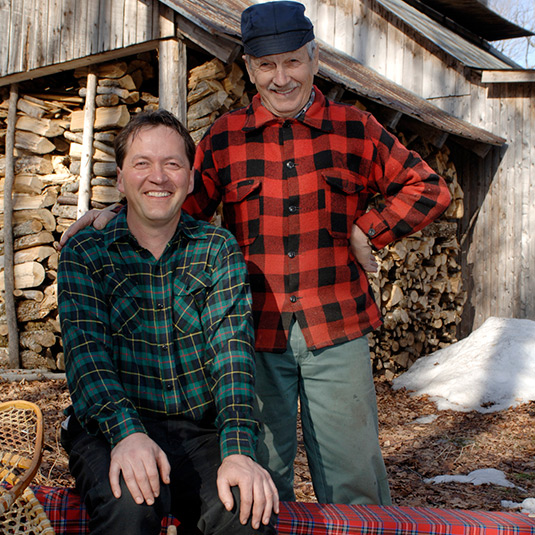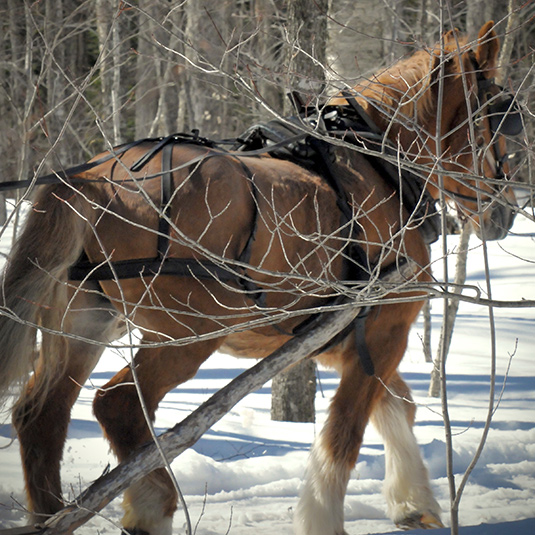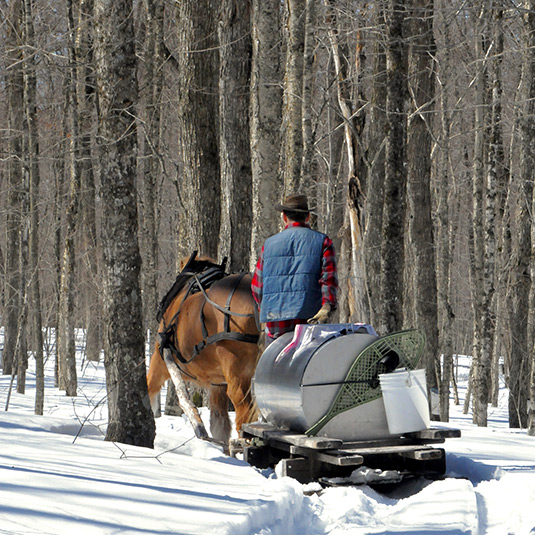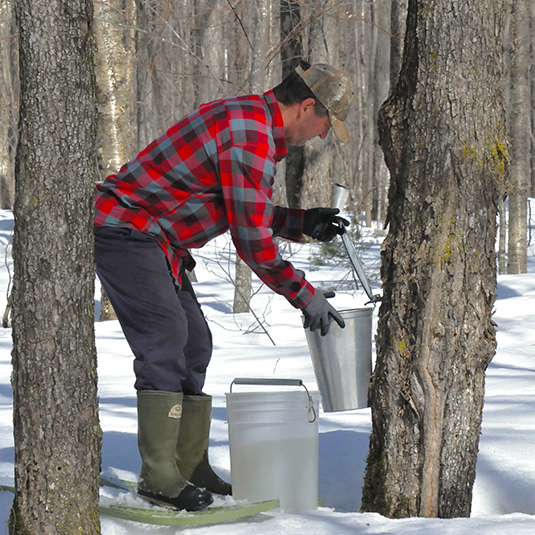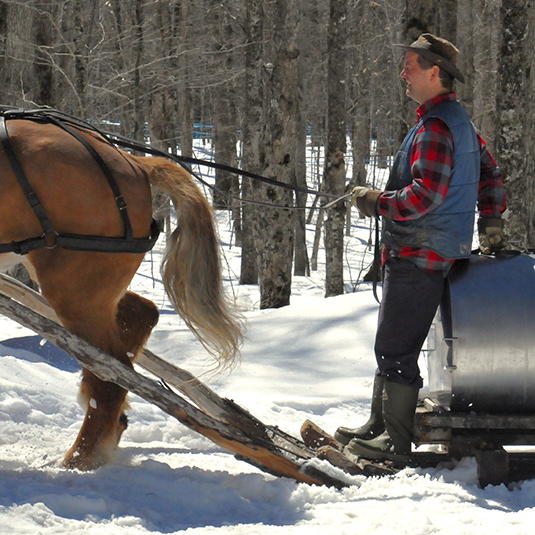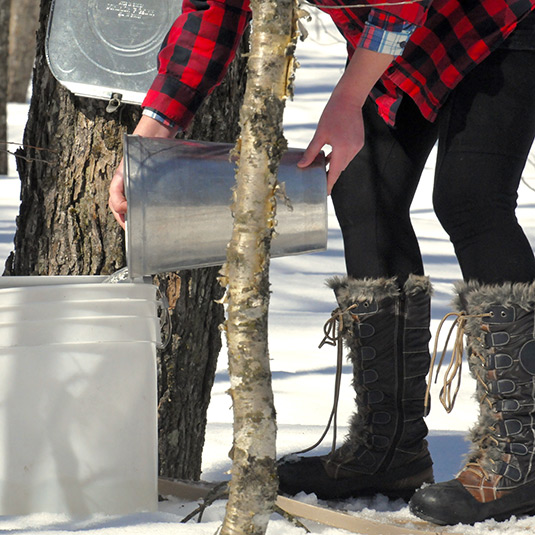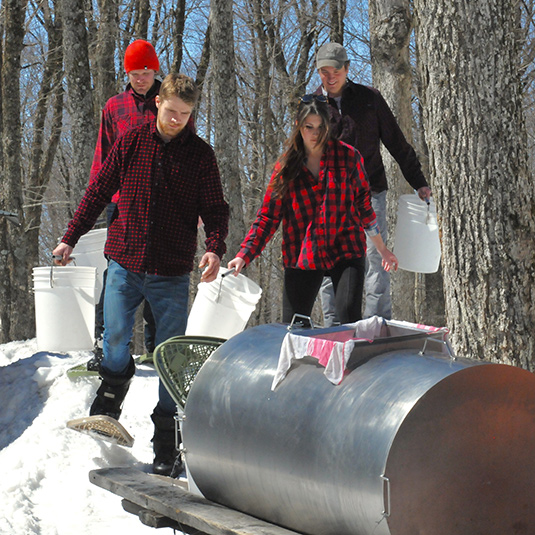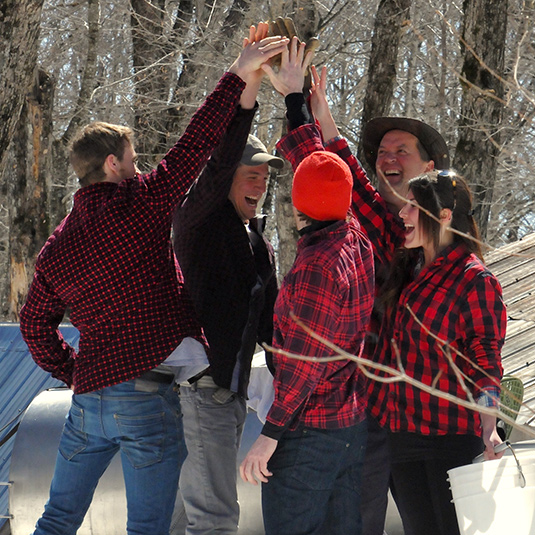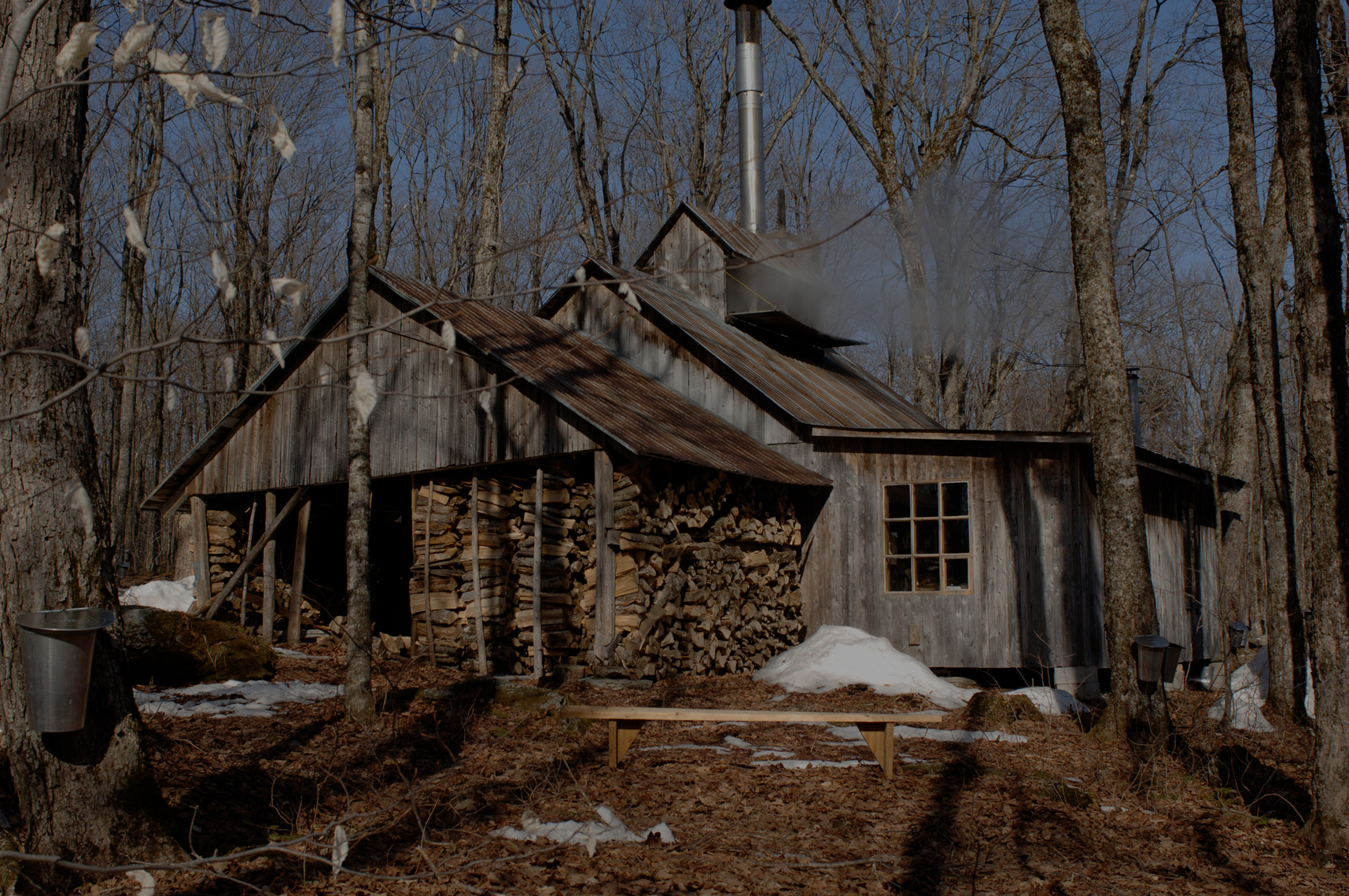
About Us
The Discovery of Maple Syrup in Canada
The first North American immigrants were pioneers who observed that certains animals, such as red squirrels, would lick the sweet sap running from the broken branches of maple trees. This story, handed down from the original settlers, inspired the Jesuits, who disseminated many First Nations legends. Many missionaries, among them André Thévet, benefited from First Nations traditions, including the one using the sweet sap from a certain tree named michtan around 1558.
Only in 1685 was maple sugar spoken of for the first time. And only at the end of the 17th century did maple sugar production slowly start to infiltrate the Canadian way of life. It would take another century before maple syrup became a staple of the Canadian kitchen.
When the French singer/songwriter Albert Larrieu came to Canada in May 1917, he summed up his experiences at the Sugar Shack in various songs, entitled La tire (Maple Taffy), Les crêpes (Crepes), La cabane à sucre (Sugar Shack), La feuille d’érable (Maple Leaf). All of which deal with a similar them: the maple tree.
Following in the footsteps of his ancestors, René Turmel, alias the Maple Man, discovered the West just as his predecessors did. A third-generation maple producer from the Turmel family, René returned to work in British Columbia every year. Once he understood the temperature, mountains, lakes, fruits, as well as the ambience in summer, René chose the Okanagan Valley as home. For the past 20 years, he has criss-crossed the Canadian West, sometimes planting trees, sometimes picking fruit. Today, he continues his Western journey by sharing his passion for the maple tree, still considered a mystery by many British Columbians.
Thanks to his business La Grande Coulée/The Maple Man, René has been touring Canada for the past five years with his traveling show, spreading his knowledge across the country about traditional sugar shacks.
The Maple Man, the Man Behind the Legend…
I discovered the maple grove when I was twelve years old. Since then, I have read a lot of books on the maple tree. In everything I’ve read, they say it’s a generous tree which, thanks to its multiple attributes, supplies not only sweet water that can be concentrated into syrup, but also wood that can be used in all sorts of ways. Whether it’s for rail ties, pieces of furniture, kitchen cabinets, or even for building bowling alleys or musical instruments, like the violin, where the bottom of the case is always made from maple wood, this very emblematic Canadian tree is also a very necessary one.
I’ve paid particular attention to the benefits of the maple tree. From my earliest days, my passion for maple syrup harvesting has only gotten deeper. Day after day, harvest after harvest, my flame burns ever more brightly for the maple tree, which, by its truly regal natural beauty, has given me so much happiness. Anyway, nowadays I like to define myself as a lover of the tree which helped me to grow, to evolve to the point where I am now living my dream of being an artisan on the cutting edge of everything produced from this sap that has earned worldwide respect.
When I walk in a well-maintained maple forest, I enjoy breathing in the pure odours coming off the trees, odours which give me a profound sense of well-being. Everything seems calm and beautiful, my relaxed heart beats at its best, and my mind daydreams happily. When I settle in to my sugar shack to bring to a boil tons and tons of sap, my body warms itself nicely by the evaporator’s fire, and my face gets nicely steamed by the sweet vapours rising like clouds up to the ceiling.
Moments of complete fullness. If I’m alone, I’m happy in a way that’s hard to define. If I’m with others I’ve invited for a sugaring-off party, my joy is even deeper and even harder to define.
Which is to say that, for a simple maple tree to give me the means to make syrup, maple sugar and a golden taffy that people adore, it’s worth all the work and effort I put into it. Then again, why speak of work when you have a passion inside of you that since childhood has only gotten deeper and deeper…?

